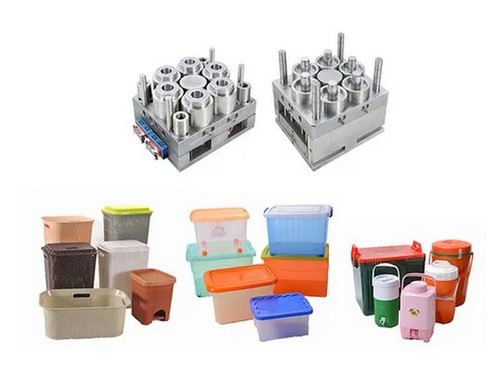Multi-cavity injection molding is a manufacturing process used in the production of plastic parts in large quantities. It is a process that involves the use of multiple cavities within a single mold to produce multiple parts simultaneously. This process is used in a variety of industries, including automotive, medical, and consumer goods.

The process of Multi Cavity Low Temperature Injection Molding begins with the design of the mold. The mold is designed to have multiple cavities, each of which is a replica of the part that needs to be produced. The mold is then mounted onto the injection molding machine. The machine has a hopper that is filled with plastic pellets, which are then heated and melted. The molten plastic is then injected into the mold under high pressure, filling the cavities and taking the shape of the parts.
The use of multiple cavities in the mold allows for the simultaneous production of multiple parts, which can significantly increase the efficiency and productivity of the manufacturing process. This is particularly useful in the production of high-volume parts, where the use of single-cavity molds would be impractical and time-consuming.
Multi-cavity injection molding offers several advantages over other manufacturing processes. For example, it allows for the production of complex parts with high precision and consistency. It also reduces the time and cost associated with the production of individual parts, as multiple parts can be produced simultaneously in a single manufacturing cycle.
Another advantage of multi-cavity injection molding is that it allows for the use of a wider range of materials than other manufacturing processes. This is because the process can handle materials with varying viscosities and melting points, which makes it suitable for the production of parts with different properties and characteristics.
Despite its many advantages, multi-cavity injection molding also has some limitations. For example, the design and production of the mold can be complex and expensive, particularly for parts with intricate shapes or tight tolerances. In addition, the use of multiple cavities can result in variations in part quality, which can be difficult to control.
In conclusion, multi-cavity injection molding is a versatile and efficient manufacturing process that is widely used in the production of plastic parts. Its ability to produce multiple parts simultaneously, with high precision and consistency, makes it a valuable tool for the production of high-volume parts. However, it also has some limitations that must be considered when deciding whether to use this process for a particular manufacturing application.













